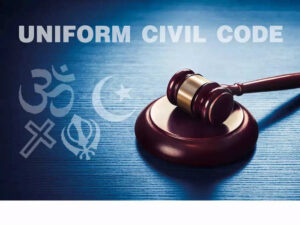A Historic Speech: Modi’s Record-Breaking Address
Once more prime Minister Narendra Modi has made history by delivering his longest Independence Day speech to date, clocking in at 98 minutes. His speeches, averaging 82 minutes, have become a staple of India’s Independence Day celebrations, each one filled with significant announcements and reflections on the nation’s progress. This year was no different, as PM Modi addressed the nation from the iconic Red Fort, touching on crucial issues that resonate deeply with the public. Let’s explore the five key highlights from this landmark speech, each carrying profound implications for India’s future.
1. Women’s Safety: A Call for Urgent Action

Addressing the Outrage
One of the most pressing issues PM Modi addressed in his speech was the safety of women, a topic that has sparked public outrage across the country. In a pointed reference to the tragic rape and murder of a doctor at a Kolkata hospital, the Prime Minister voiced the collective anger and frustration felt by many. “There is public outrage over atrocities against our mothers and sisters. I feel this outrage,” he declared, emphasizing the need for swift justice in cases of violence against women.
Strengthening Legal Frameworks
PM Modi’s comments on women’s safety were not merely rhetorical. He called for a robust legal framework that ensures swift investigation and strict punishment for those involved in such heinous acts. This, he argued, is essential for restoring public faith in the justice system. By advocating for expedited legal processes, PM Modi highlighted the government’s commitment to creating a safer environment for women in India, a move that could have far-reaching consequences in the ongoing battle against gender-based violence.
Societal Responsibility
Beyond the legal realm, PM Modi stressed the importance of societal change. He urged state governments and society at large to take the issue of women’s safety seriously. His speech underlined the necessity of a collective effort to combat the deep-rooted cultural norms that perpetuate violence against women. By addressing this issue so prominently, PM Modi has once again brought women’s safety to the forefront of national discourse, reinforcing its significance in India’s journey toward a more just and equitable society.
2. Uniform Civil Code: A Push for National Unity

The Need for a Secular Civil Code
In one of the most significant segments of his speech, PM Modi made a strong case for the implementation of a Uniform Civil Code (UCC) in India. Describing the current civil code as “communal” and divisive, he argued that a UCC is essential for national unity and the true realization of secularism in India. “A secular civil code in the country is the need of the hour,” he asserted, positioning the UCC as a crucial step toward eliminating discrimination based on religion.
Constitutional Spirit
PM Modi’s advocacy for the UCC was framed as a continuation of the spirit of the Indian Constitution. He emphasized that the UCC is not just a legal reform but a constitutional imperative that upholds the principles of equality and non-discrimination. By linking the UCC to the foundational values of the nation, PM Modi sought to rally public support for what could be one of the most transformative legal changes in India’s history.
Addressing Opposition
Acknowledging the contentious nature of the UCC, PM Modi also addressed the concerns of those who oppose it. He argued that the UCC is not about imposing uniformity but about ensuring justice and equality for all citizens, regardless of their religious affiliations. His speech aimed to dispel fears and misconceptions surrounding the UCC, portraying it as a progressive step toward a more unified and harmonious India.
Also Read: https://newsreporto.com/karnataka-dam-disaster-tungabhadra-gate-collapse/
3. Bangladesh: A Concern for Regional Stability

India’s Role in Regional Peace
PM Modi’s speech also touched on international relations, particularly the political unrest in Bangladesh. He expressed concern over the safety of Hindu minorities in the neighboring country, reiterating India’s commitment to regional stability and peace. “As a neighboring country, I can understand the concern regarding whatever has happened in Bangladesh,” PM Modi said, highlighting the delicate balance India must maintain in its diplomatic relations with its neighbors.
Protecting Minority Rights
The Prime Minister’s comments on Bangladesh were not just about regional politics but also about human rights. He emphasized India’s concern for the safety and well-being of Hindus and other minorities in Bangladesh, signaling that India would continue to advocate for their protection. This stance underscores India’s broader role as a regional power committed to upholding human rights and fostering peaceful coexistence.
Implications for Indo-Bangladesh Relations
PM Modi’s remarks on Bangladesh have significant implications for Indo-Bangladesh relations. By publicly addressing the situation, he sent a clear message to both the Bangladeshi government and the international community about India’s expectations. His speech may influence future diplomatic engagements between the two countries, particularly in areas related to minority rights and regional security.
4. Reforms: Breaking the Status Quo

A Legacy of Change
Throughout his tenure, PM Modi has positioned himself as a reformer, and this year’s Independence Day speech was no exception. He spoke at length about the importance of reforms, describing them as essential for India’s growth and development. “There was an environment of status quo. We had to break that mindset,” he said, reflecting on the resistance to change that has often hindered progress in India.
Targeting Key Sectors
PM Modi’s commitment to reform was evident in his discussion of various sectors where his government has implemented significant changes. From economic policies to social welfare programs, the Prime Minister highlighted how these reforms have benefited the poor, the middle class, and marginalized communities. His speech underscored the government’s focus on inclusive growth, ensuring that the benefits of reform reach all sections of society.
The Path Ahead
Looking forward, PM Modi outlined his vision for continued reforms, emphasizing that the journey is far from over. He called on citizens to embrace change and support the government’s efforts to transform India into a more prosperous and equitable nation. By framing reforms as a collective responsibility, PM Modi aimed to build a broad-based consensus around his agenda, ensuring that the momentum for change is sustained.
5. One Nation, One Election: A Vision for Political Stability
The Case for Synchronization
One of the more forward-looking proposals in PM Modi’s speech was his renewed pitch for “One Nation, One Election.” He argued that frequent elections are a major obstacle to the country’s progress, creating unnecessary disruptions and hindering long-term policy planning. “Frequent elections are creating hurdles in the progress of the nation,” he said, making a case for synchronizing elections across the country to streamline governance.
Extensive Consultations
PM Modi assured the nation that the idea of One Nation, One Election has been extensively discussed and debated across the country. By highlighting the broad consultations that have taken place, he sought to build legitimacy for the proposal, countering criticism that it could undermine the democratic process. His speech suggested that the government is serious about pursuing this reform, which could significantly alter India’s political landscape.
Potential Benefits
The Prime Minister outlined several potential benefits of One Nation, One Election, including cost savings, reduced political instability, and more effective governance. He argued that by reducing the frequency of elections, the government could focus more on policy implementation and less on electioneering. This proposal, if implemented, could lead to a more stable and efficient political system, allowing for more consistent and sustained development efforts.
Charting a New Course for India
As PM Modi’s record-breaking speech drew to a close, it was clear that he had set out an ambitious agenda for the future. From advocating for a Uniform Civil Code to proposing sweeping political reforms, the Prime Minister’s address was a call to action for the nation. Each of the key highlights — women’s safety, the UCC, regional stability, economic reforms, and One Nation, One Election — reflects his vision for a stronger, more unified India. As the country moves forward, the themes and proposals from this speech will undoubtedly shape the national discourse and influence the direction of India’s development in the years to come. The path ahead is challenging, but with the Prime Minister’s steadfast leadership, India is poised to navigate these challenges with determination and resolve.


I share your level of enthusiasm for the work you’ve produced. The sketch you’ve displayed is refined, and the material you’ve authored is impressive. Nevertheless, you seem anxious about the prospect of heading in a direction that could cause unease. I agree that you’ll be able to address this concern in a timely manner.
Techno rozen For the reason that the admin of this site is working, no uncertainty very quickly it will be renowned, due to its quality contents.